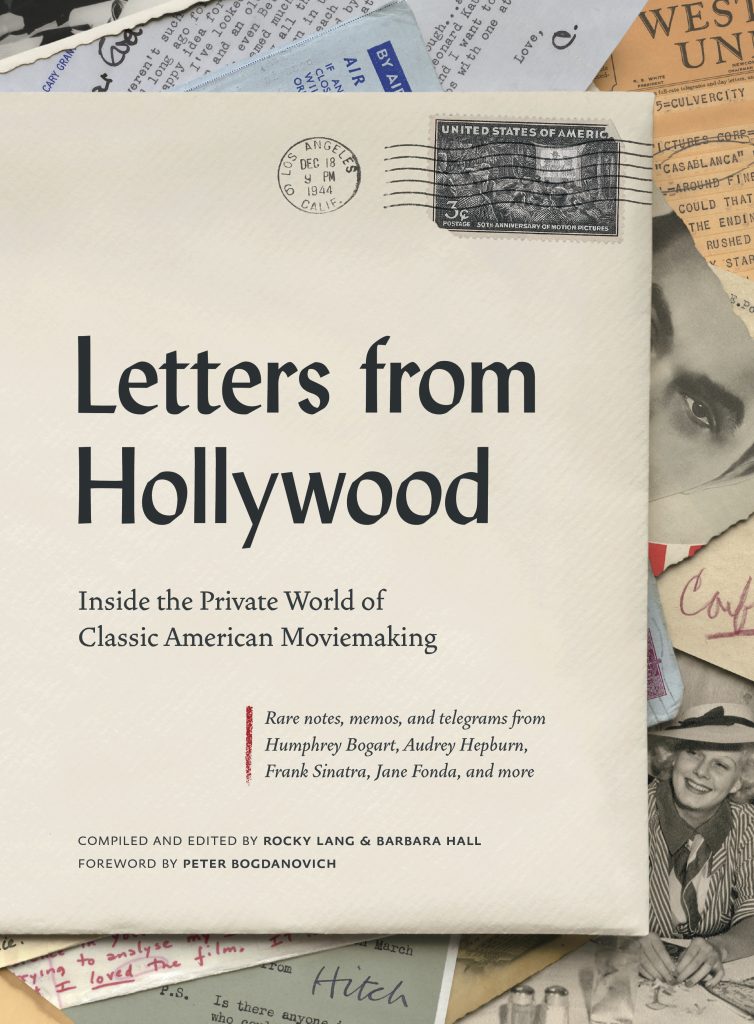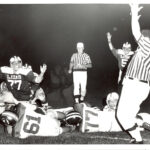BY DOUGLASS K. DANIEL, ASSOCIATED PRESS
Paul Newman passes on an offer to co-star with Barbra Streisand in “Funny Girl,” saying he can’t carry a tune or dance.
Col. Tom Parker suggests a story line for a movie starring his client Elvis Presley in which the singer plays a young man raised by the gypsies who had kidnapped him as a baby — “with a good love angle involved.”
A 17-year-old Tom Hanks, writing on notebook paper, pitches himself to be “discovered” by the director of “The Sting,” George Roy Hill, who happens to be the uncle of some of his classmates.
“My looks are not stunning,” writes the future two-time Oscar winner. “I am not built like a Greek God, and I can’t even grow a mustache, but I figure if people will pay to see certain films (‘The Exorcist,’ for one) they will pay to see me.”
These and other little joys are to be found in “Letters from Hollywood,” a collection of movie-related correspondence from archives, libraries and private collections. Many of the missives deal with the nuts and bolts of filmmaking — screenwriting, casting, directing and more — along with personal reflections and an occasional catty comment.
Fans of classic films who know the difference between a Sturges and a Selznick or a Kazan and a Karloff will be intrigued or amused by private reflections such as:
- “Now I have reformed from all that foolishness of gabbing around, Its one of the lowest forms of art there is, is after dinner speaking, and besides I am an Actor now, they are on the verge of putting me in sex parts, (that’s not six, that’s SEX).” — Humorist turned movie star Will Rogers, declining to address a bankers group, circa 1926.
- “Except as a scientific achievement, I am not sympathetic to this ‘sound’ business. I feel, as so many do, that it is a mechanical resource, that it is a retrogressive and temporary digression in so far as it affects the art of motion picture acting, — in short that it does not properly belong to my particular work.” — Actor Ronald Colman, 1928. Nonetheless, he was a major star in the first three decades of talking pictures.
- “I’ve seen the picture, and it’s foul. It doesn’t leave Mr. Hearst with one redeeming feature. Nobody but Orson would have dared do a thing like that, and I personally hope it will never be shown on the screen.” — Gossip columnist Hedda Hopper on “Citizen Kane,” its inspiration, newspaper publisher William Randolph Hearst and director Orson Welles, 1941. The movie is widely regarded today as the greatest ever made.
- “Blumofe reports New York did not care for Connery feels we can do better.” — Producer Albert Broccoli on United Artists’ initial reaction to the idea of casting actor Sean Connery as British agent James Bond, 1961. Connery got the job after all.
Editors Rocky Lang, a writer and producer who grew up in the movie business, and Barbara Hall, a film historian and archivist admired by many a researcher, wisely present correspondence in high-resolution, full-color scans, allowing readers a view of telegrams, unusual letterheads, unique handwriting and even the occasional sketch in the margins.
Their book is a testament to the value of archives and those who nurture them as one would an endangered species.
“Letters from Hollywood: Inside the Private World of Classic American Moviemaking”
- Compiled and edited by: Rocky Lang and Barbara Hall
- Publisher: Abrams
- Pages: 352
- Price: $40




